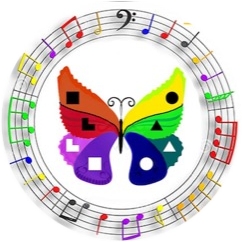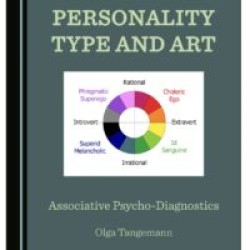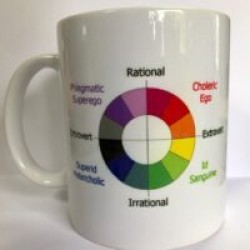What Your Musical Taste Says About Your Personality?
We’re exposed to music for nearly 20% of our waking lives. But much of our musical experience seems to be a mystery. Why does some music bring us to tears while other pieces make us dance? Why is it that the music that we like can make others agitated? And why do some people seem to have a natural ability to play music while others have difficulty carrying a tune? Science is beginning to show that these individual differences are not just random but are, in part, due to people’s personalities.
My colleagues and I have published research showing that people’s musical preferences are linked to three broad thinking styles. Empathisers (Type E) have a strong interest in people’s thoughts and emotions. Systemisers (Type S) have a strong interest in patterns, systems and the rules that govern the world. And those who score relatively equally on empathy and systemising are classified as Type B for “balanced”.
Research from the past decade has shown that 95% of people can be classified into one of these three groups and that they predict a lot of human behaviour. For example, they can predict things such as whether someone studies maths and science, or humanities at university. For the first time, we have shown that they can predict musical behaviour, too.
Matching Music With Thinking Style
To study this phenomenon, we conducted multiple studies with over 4,000 participants. We took data on these participants’ thinking styles and asked them to listen to and indicate their preferences for up to 50 musical excerpts, representing a wide range of genres. Across these studies, we found that empathisers preferred mellow music that had low energy, sad emotions, and emotional depth, as heard in R&B, soft rock, and singer-songwriter genres. For example, empathising was linked to preferences for “Come Away With Me” by Norah Jones and Jeff Buckley’s recording of “Hallelujah”.
On the other hand, systemisers preferred more intense music, as heard in hard rock, punk and heavy metal genres. Systemisers also preferred music with intellectual depth and complexity as heard in avant-garde classical genres. For example, systemizing was linked to preferences for Alexander Scriabin’s “Etude opus 65 no 3”. Importantly, those who are Type B, had a tendency to prefer music that spans more of a range than the other two thinking styles.
In our most recent study, published in the Journal of Research of Personality, we found that people’s personality traits can also predict their musical ability, even if they don’t play an instrument. Our team worked with BBC Lab UK to recruit over 7,000 participants and assess them for five distinct personality dimensions: openness, conscientiousness, extroversion, agreeableness, and neuroticism/emotionality stability. We also asked them to conduct various tasks that measured their musical ability, including remembering melodies and picking out rhythms.
We found that, next to musical training, the personality trait of openness was the strongest predictor of musical sophistication. People who score highly for openness are imaginative, have a wide range of interests, and are open to new ways of thinking and changes in their environment. Those who score low on openness (or who are “closed”) are more set in their ways, prefer routine and the familiar, and tend to have more conventional values. We also found that extroverts who are often more talkative, assertive, and excitement-seeking had greater singing abilities.
Furthermore, we could apply this even to people who did not currently play a musical instrument, meaning there are people who have a potential for musical talent but are entirely unaware of it.
Music Therapy
These new findings tell us that from a person’s musical taste and ability, we can infer a range of information about their personality and the way that they think.
This research shows there are factors beyond our awareness that shape our musical experiences. We hope that these findings can be of help to teachers, parents, and clinicians. Based on information about personality, educators can ensure that children with the potential for musical talent have the opportunity to learn a musical instrument. Music therapists can use information about thinking style to help tailor their therapies for clients, too.
We are also interested in how knowledge gained from science can help children and adults on the autism spectrum who have difficulties with communication, as we recently wrote in the journal Empirical Musicology Review. This could also help people process emotions after experiencing a psychological trauma and when grieving a loss. In fact, initial findings from our lab suggest that people who experienced a traumatic event in childhood engage with music quite differently in adulthood than those who did not experience a trauma.
If you want to find out how you score on musical ability, preferences, and personality, you can take these tests at www.musicaluniverse.org.
http://www.iflscience.com/editors-b…
Your Musical Taste Depends On How Empathetic You Are?
Do you care more for rules and order, or do you prefer thoughts and emotions? Depending on how you answer this, a group of psychologists at the University of Cambridge will tell you that this is linked to your taste in music.
As reported by their recent study published in the journal PLOS ONE, those who are better at understanding the feelings of others prefer romantic, relaxing music like soft rock and some R&B, whereas those who focus on the minute details of things tend to listen to more technically complex music, such as traditional jazz. If you’re curious as to which side of the cognitive fence you fall on, don’t fret: head along to Musical Universe, an online quiz developed by the researchers, to find out.
There’s no doubt that music and the way we think and behave are inextricably linked. Last year, research revealed that practicing music makes communication between the left and right hemispheres of the brain stronger and more efficient. This new study is part of an ongoing effort to understand the psychology of music preference, and focuses on whether being more empathetic or more focused on logic and reason could have an effect on musical taste.
A team of psychologists led by David Greenberg, a Ph.D. candidate at the University of Cambridge, recruited over 4,000 participants and asked them detailed questions about their thinking styles. They were then queried on their musical preferences, with 50 musical excerpts from a wide range of genres provided to help determine this.
Empathizers tended to prefer mellow, sensual, reflective music with emotional depth, such as “Come Away With Me” by Norah Jones. Soft rock and singer-songwriters tend to produce this type of music.
On the other hand, the logic-oriented “systemizers” preferred quite intense, manic music, which includes the punk rock track “God Save The Queen” by the Sex Pistols; heavy rock and classical tracks were also often chosen as favorable by systemizers.

It appeared that empathizers preferred the rush of emotions, positive or negative, associated with certain types of music. The authors go on to suggest that those lacking in empathy – psychopaths, for example – could perhaps improve their empathy quotient by listening to more emotionally-layered music. Although this link isn’t demonstrated in their study, its possible existence could form the basis of future research.
Conversely, systemizers seemed to enjoy acknowledging and picking apart the complex instrumentation of other types of music. “It’s almost like a musical puzzle that they’re putting together,” Greenberg told CNN. It’s possible to be a mix of both thinking styles, of course, which would make you “balanced.”











